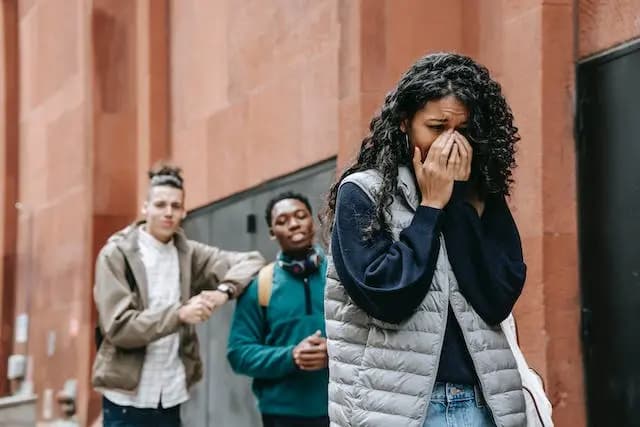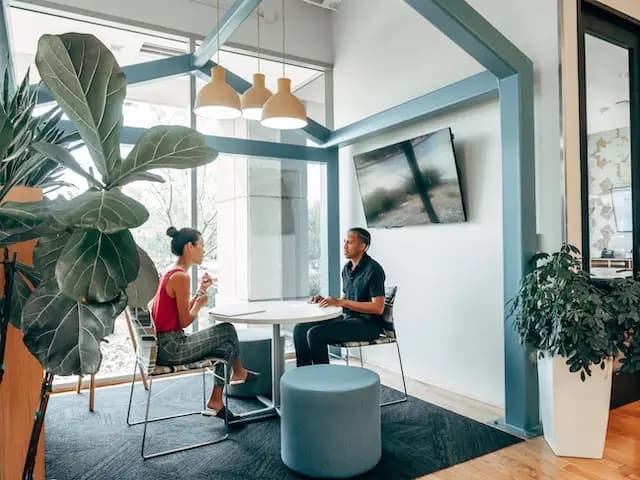Why most Students get Rejected in F1 Visa Interview?
TABLE OF CONTENTS:
- Top 6 Reasons for Denial in F1 Visa Interviews
- Tips for a Successful F1 Visa Interview
- Frequently Asked Questions
- Conclusion

Are you gearing up for your big leap across the globe to study in the United States? If so, you're likely aware that the F1 visa interview is a crucial step in this journey. But here's a puzzler – why do many International students face rejection during their F1 Visa Interview? This article isn't just about listing these reasons; it's about understanding them, overcoming them, and turning your American dream into a reality. So, grab a cup of chai, and let's unravel this together.
Top 6 Reasons for Denial in F1 Visa Interviews
Here is a list of the top six reasons for denial in US F1 Visa interviews.
1. Inadequate Financial Proof
Money talks, especially in visa interviews. One of the primary reasons for rejection is the inability to prove financial stability. The U.S. consular officers need to be convinced that you have enough funds to support your education and living expenses in the States.
Example: Take the case of Bishal from Nepal, who, despite having a scholarship, couldn't show sufficient savings to cover his living expenses. The consular officer wasn't convinced that he could financially sustain his stay in the U.S.
Suggested Solution: Start preparing early. Gather documents like bank statements, scholarship letters, and sponsorship letters. If possible, show a stable financial history that reflects your or your sponsor's ability to support your education.
2. Unclear Academic Intentions
Are you clear about why you chose that specific course in that particular university? Vague academic objectives can be a red flag during your visa interview. The officers want to know that your educational plans are precise and well-thought-out.
Example: Consider Priya from India, who applied for a Biotechnology course but was unable to articulate how it aligns with her previous studies in Pharmacy. The lack of clarity led to her visa rejection.
Suggested Solution: Be clear and confident about your educational choices. Connect the dots between your past studies, the chosen course, and your future career plans. It's your academic story – make it compelling!
3. Poor Communication Skills
Fluent English isn't just about impressing your friends; it's a crucial requirement for your U.S. education. Struggling with English during the interview raises doubts about your ability to cope with an English-medium education system.
Example: Jose, from Mexico, had top grades but faltered in expressing his thoughts during the interview. His limited English proficiency led to concerns about his academic adaptability in the U.S.
Suggested Solution: Practice, practice, and more practice. Engage in English conversations, watch English movies or shows, and maybe even join an English-speaking course. Let language be your bridge, not a barrier.
4. Misrepresentation of Facts or Fraudulent Documents
Honesty is your best policy when it comes to the visa interview. Misrepresenting facts, whether in your application or during the interview, is a major reason for rejection. This includes overstating your qualifications or presenting false documents.
Example: Raj, from India, was a bright student, but he made the mistake of including a few embellished achievements in his resume. The visa officer, after a bit of probing, found inconsistencies, leading to his application being rejected.
Suggested Solution: Stick to the truth. Ensure that all the information and documents you present are authentic and verifiable. Remember, trust, once lost, is hard to regain.
5. Lack of Home Ties
The U.S. consulate needs assurance that you will return to the country after your studies. If they sense that you might stay in the U.S. post-graduation, your visa chances diminish.
Example: Deepika, from Pakistan, who had most of her family in the U.S., found it challenging to convince the officer of her intent to return to the country after her course.
Suggested Solution: Strengthen your ties to the country in the eyes of the consulate. This could be through family bonds, property, a job offer, or clear career plans in the country post your studies.
6. Lack of Preparation
Underestimating the visa interview is a common pitfall. Being unprepared for typical questions or appearing disorganized can set a wrong impression.
Example: Moketo, from Nigeria, stumbled through questions about his future plans and couldn't promptly provide necessary documents, showcasing a lack of preparation.
Suggested Solution: Prepare and practice. Familiarize yourself with common interview questions and have all your documents organized and ready for presentation.
Tips for a Successful F1 Visa Interview
Documentation Is Key: Have all your documents, including financial records, university acceptance letters, and past academic records, neatly organized and readily accessible.
Mock Interviews: Practice with friends, family, or mentors. Simulating the interview environment can greatly boost your confidence.
Be Concise Yet Informative: Answer questions clearly and to the point. Avoid unnecessary details, but be ready to provide specifics if asked.
Understand Your Course and University: Be clear about why you chose your specific course and university. Your reasons should reflect your academic and career aspirations.
Frequently Asked Questions
-
How can I prove my intent to return to the country after my studies?
You can demonstrate intent to return by showing ties to the country such as family bonds, property, future job offers, or career plans that clearly indicate your commitment to come back.
-
Is having relatives in the US a disadvantage during the F1 visa interview?
Not necessarily, but it requires careful handling. You must convincingly show that your primary intent is education and not immigration. Having relatives in the US can sometimes raise concerns about your intent to return.
-
What role does my academic background play in the F1 visa interview?
Your academic background, including past education and future study plans, must align coherently. Inconsistencies or lack of clarity about your academic goals can raise doubts about your genuine interest in studying.
-
Can visa reapplication be successful after an initial rejection?
Yes, reapplication can be successful, especially if you address the reasons for the initial rejection. It’s important to provide any new information or changes in your circumstances in subsequent applications.
Conclusion
Remember, every interview is a learning experience. Rejections aren't the end but a chance to improve and understand the process better. Equip yourself with the right knowledge, prepare thoroughly, and approach the interview with confidence and honesty. You're not just chasing a visa; you're chasing your dreams. Good luck, and go make them a reality!



